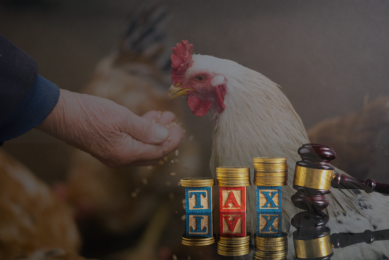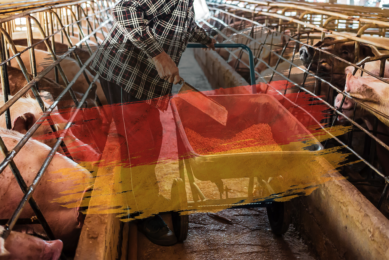Don’t be afraid of technology

Cows, sheep and chicken that consume genetically engineered feed crops are as healthy and productive as animals that eat ‘normal’ feed. It has been scientifically proven, but this conclusion may make the general public feel uncomfortable.
Technological advancements are hitting the market at great speed. New iPhones, electric cars, solar fuelled highway lighting, just to name a few. These developments are applauded by most of us and most people get excited when new gadgets hit the market. But when it comes to technological advancements in live animals or food, this enthusiasm stops. But why? Often it is related to ethics and emotions and not based on scientifically proven studies. Ask the general public whether they think an organic apple is more healthy than the inorganic one, the majority will probably say yes. The same applies to genetically modified products. The consumer will probably say that animals are better off with normal feed crops instead of genetically engineered feed materials. Messing around with DNA is a no-no for most people (even if it is based on normal selection of plants).
Review of 30 years of research
It is important to find the facts behind these assumptions, and researchers from the University of California did just that. They compared the performance and health of food-producing animals consuming genetically engineered (GE) feed, first introduced 18 years ago, to that of animals consuming non-GE feed. The recently published review, led by UC Davis animal scientist Alison Van Eenennaam, examined nearly 30 years of livestock-feeding studies that represent more than 100 billion animals. The review study found no differences in health and performance of the animals. The researchers also detected no differences in the nutritional make up of the meat, milk or other food products derived from animals that ate genetically engineered feed.
EU is against
In the USA, these research findings might come as a surprise and probably most states don’t have a problem to using these GE ingredients. In the USA, already 19 genetically engineered plant species are approved for use, including the major crops used extensively in animal feed: alfalfa, canola, corn, cotton, soybean and sugar beet. According to the review, in the United States, alone, 9 billion food-producing animals are produced annually, with 95% of them consuming feed that contains GE ingredients. But the USA has a totally different approach in this than the rest of the world. In many EU countries, such as the Netherlands, France and Austria, people are very sceptical against using this technology for feed ingredients. They probably find these new research findings rather uncomfortable. The EU does imports these ingredients, but it is not allowed to grow them in Europe. And I don’t see that happening on the short term.
Technology is needed
I am not saying that we should encourage the use of genetically engineered crops, nor am I discouraging it. I do want to emphasise that we don’t have to be afraid of technology in the animal feed and animal production industry. In every (non-agricultural) sector, technology and growth of companies is encouraged, and for some reason people don’t like the fact that technology is mixed with nature (in this case: food and food production animals). A great ambassador for technology in agriculture is Aalt Dijkhuizen, former president of Wageningen University and Research Centre in the Netherlands. In a recent interview in One World magazine he states: “It is in the genes of the Dutch people to be afraid of technology. Maybe because we are not brought up with it as in the US and China. I find it odd: there is no sector that is encouraging small companies. But in agriculture, we only want small ‘cosy’ farms. We want ‘romantic’ products from organic farmers. That is not only inefficient, most farmers are not happy with this concept”.
Old milk cans in commercials
I do agree with Aalt, technology can be a good thing and of course this is already been done to a great extent in the international agri- and horticulture. Think of the milking robots, GPS systems, drones, automatic feeding systems, health and fertility sensors and indeed GMOs such as drought resistant crops and feed crops that produce more per hectare than conventional crops. At the same time, farmer markets (with organic products) are popping up everywhere and TV commercials about cheese are showing old milk cans and farmers that milk the cows manually. All made by pr people to create that ‘romantic’ atmosphere around farm products. I have to admit that I enjoy visiting an organic farmers market, because it shows the passion of the people producing our food. But this is still a niche market. It is about communicating the real and full story. Are we embarrassed to do so? Just show that farms are – just like other sectors- part of a technology driven world. And communicate this as being a good thing. But I agree that ethically speaking there might be a difference between introducing technical gadgets into the barn and flying a drone over a corn field and genetically altering the feed crops. Concerning the latter, new research has shown that we have no reason to worry. Now find a way to communicate this to the general public.











